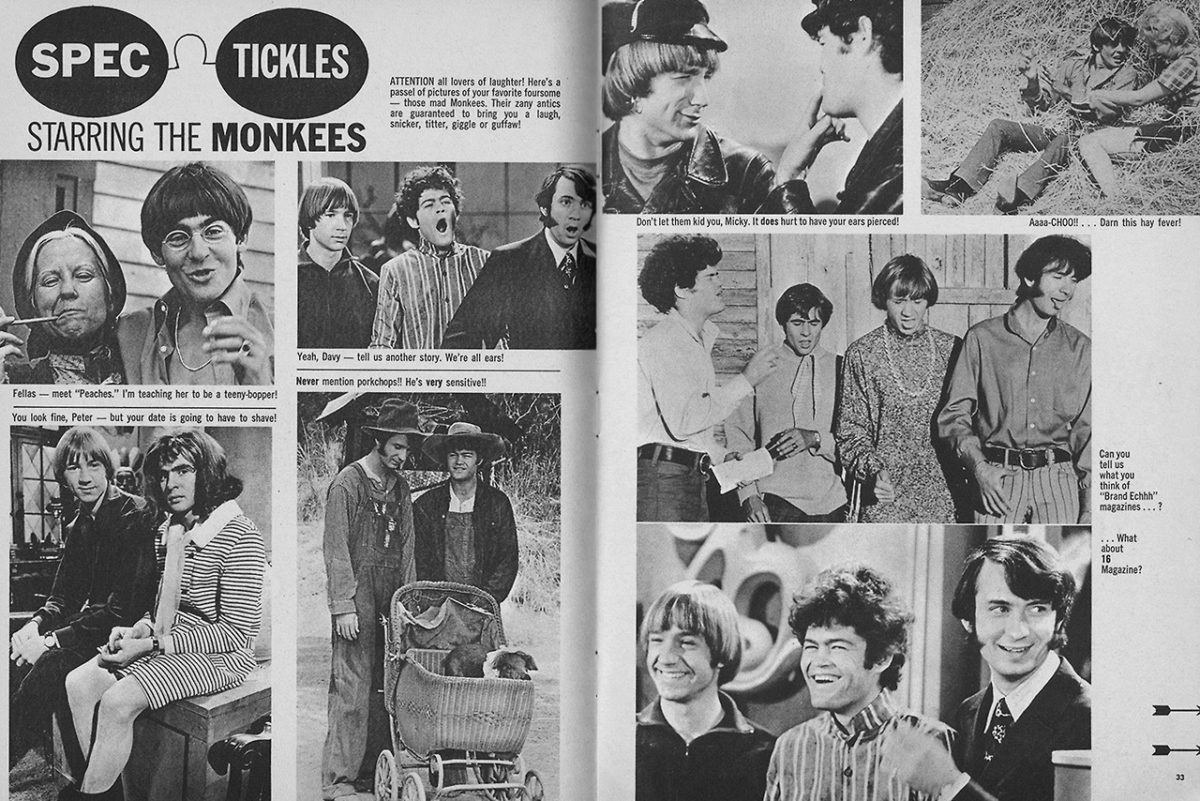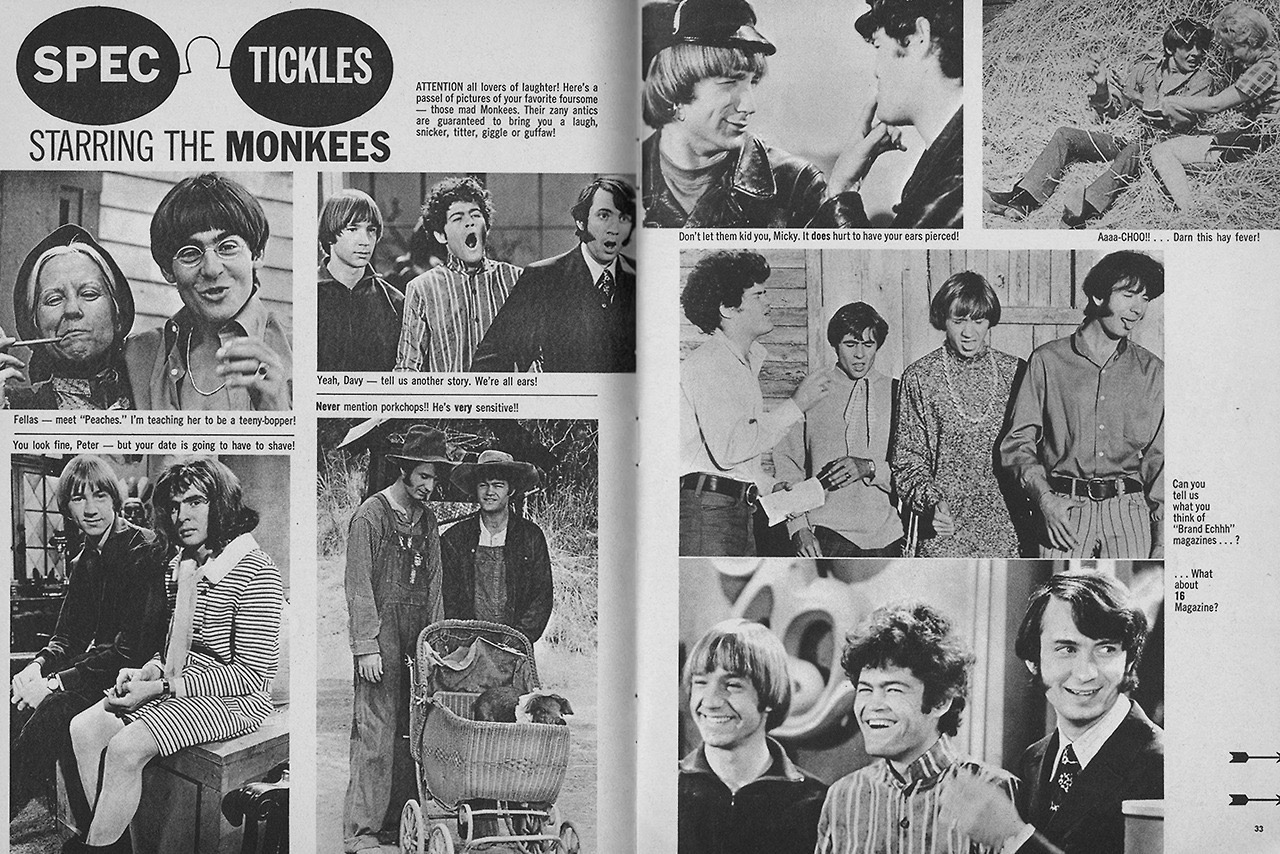
When Women Wrote Hollywood – 26 in a series – Clara Beranger
Clara Beranger (also Berenger, née Strouse, January 14, 1886 – September 10, 1956) was an American screenwriter of the silent film era and a member of the original faculty of the USC School of Cinematic Arts.
Using the pseudonym of Charles S. Beranger, her first screen employment was as a freelancer, writing for the Edison, Vitagraph and Kalem companies, to whom she furnished many originals as well as continuities. Her success attracted some attention and she was appointed as a staff writer for the Fox Corporation. She wrote several scripts for the popular child star Baby Marie Osborne as well as a much-praised adaptation of A Tale of Two Cities. Beranger also wrote The Interloper for Kitty Gordon, The Bluffer for June Elvidge and The Mirror for Marjorie Rambeau, though many of these films are considered lost.[3] With Forrest Halsey, Beranger wrote the stage play, His Chinese Wife, which received good reviews and became one of the successes of the 1919–1920 season.[3]
In 1921, Clara took Frances, then twelve, and migrated to Hollywood to write for motion pictures,[1] where she signed a long contract with Cecil B. DeMille’s Famous Players-Lasky; the outfit with whom she is most associated. She wrote or contributed to more than 24 DeMille productions, and produced both Come Out of the Kitchen and Girls for Marguerite Clark; Sadie Love and Wanted: A Husband for Billie Burke; Judy of Rogue’s Harbor for Mary Miles Minter; The Fear Market for Alice Brady; The Cost for Violet Heming; Half an Hour for Dorothy Dalton; Civilian Clothes for Thomas Meighan, Notoriety for Bebe Daniels and the long-lasting classic Dr. Jekyll and Mr. Hyde for John Barrymore.[3] — Wikipedia
Watch a movie by Clara Beranger
More about Clara Beranger
- Read more about this screenwriter in When Women Wrote Hollywood
- Like When Women Wrote Hollywood on Facebook
- Clara Beranger on Wikipedia
- Clara Beranger on IMDB
- Clara Beranger at the Women Film Pioneers Project
Buy a signed copy of when Women Wrote Hollywood
Paperback Edition | Kindle Edition | Google Play Edition
* A portion of each sale from Amazon.com directly supports our blogs
** Many of these books may be available from your local library. Check it out!
† Available from the LA Public Library
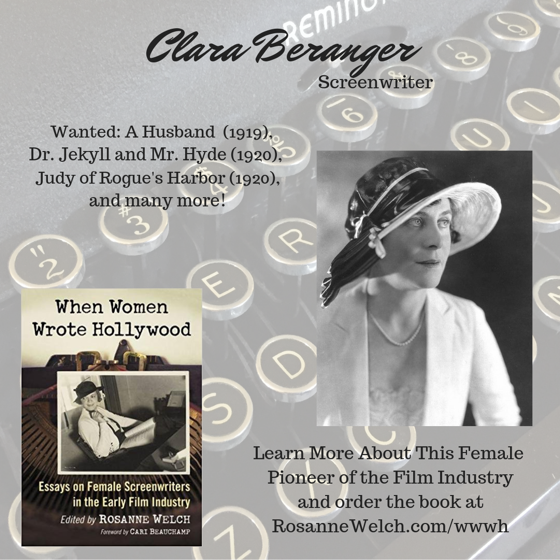
![Khanisha Foster, Author of “The Nature and Genius of Alice Guy Blaché” from “When Women Wrote Hollywood” [Video] (2:56)](https://rosannewelch.com/wp-content/uploads/2018/09/w3h-khanisha-foster.jpeg)
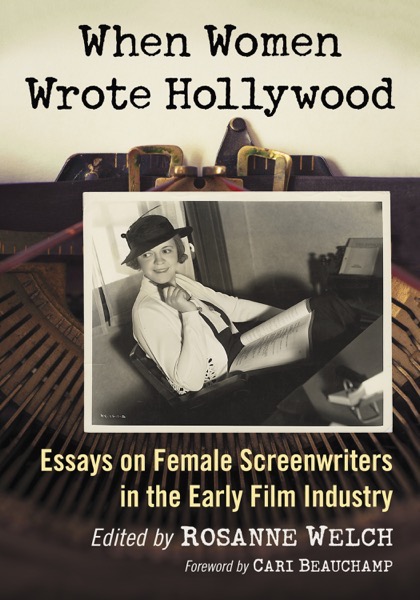

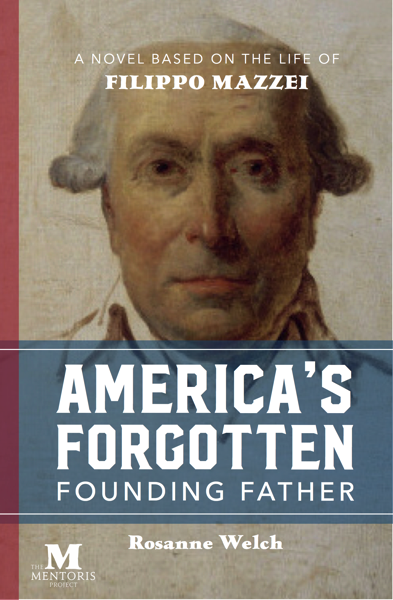












![27 River Song from Gender Diversity in the Who-niverse [Video] (0:33)](https://rosannewelch.com/wp-content/uploads/2018/09/gender-dw-27-river-song.jpeg)
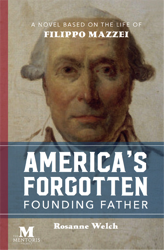


![Julie Berkobien, Author of “Frances Goodrich and Albert Hackett: The Most Beloved Couple in Hollywood” from “When Women Wrote Hollywood” [Video] (2:40)](https://rosannewelch.com/wp-content/uploads/2018/09/w3h-berkobien.jpeg)


![Sarah Phillips, Author of “Screenwriter, Producer, and Director: Marion Fairfax” from “When Women Wrote Hollywood” [Video] (3:04)](https://rosannewelch.com/wp-content/uploads/2018/09/w3h-s.phillips.jpeg)
